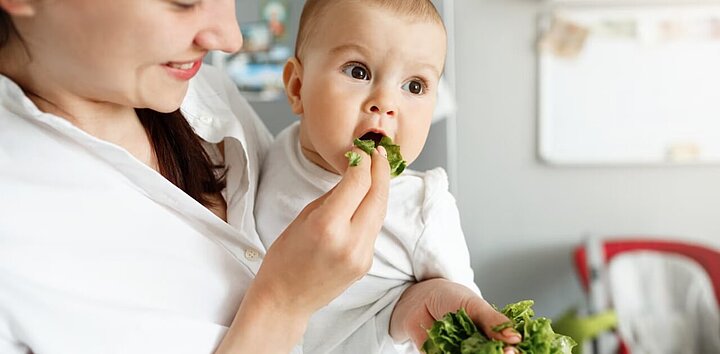Vitamin Supplements for Babies and Children

The Government recommends all children aged 6 months to 5 years are given a daily supplement containing vitamins A, C and D. However the recommendations for these important vitamins vary slightly depending on age, whether baby is breast fed, formula/combination fed and if having formula milk, how much they’re having per day.
It can be all seem a little confusing, and you may be left trying to remember what baby vitamins they need, and when...
Please always refer to your Healthcare Professional for specific advice on what is necessary for your baby.
Does my baby need supplements?
0-6 months
Although breastmilk provides all that your baby needs to grow and develop, it’s unclear how much vitamin D passes through to baby. Therefore it’s recommended that all breastfed babies are given daily vitamin D drops from birth, whether or not you're taking a supplement containing vitamin D yourself.
Combination and formula-fed babies who are having more than 500ml of formula a day don’t need to be given vitamin supplements because formula is already fortified with vitamin D and other nutrients.
6 months – 5 years
From the ages of 6 months to 5 years, it is recommended that all children are given vitamin supplements containing vitamins A, C and D every day.
One caveat however is that children over the age of 6 months who are still drinking more than 500ml of formula per day don’t require any extra vitamin supplements. It’s already there in their formula.
Where can I get vitamin A, C & D drops?
Go into your pharmacy to see what’s available for your child. There will be different combinations of vitamins for different age groups and it’s important that you only give your baby supplements that are age-appropriate. For example, gummy vitamins are not suitable for a 6-month old baby, whereas a 5-year-old might prefer a vitamin that looks like a teddy bear compared to the liquid vitamins available for babies. Check the label carefully to see which supplement is suited to your child.
As the government only recommends vitamin supplements containing vitamins A, C and D, you might need to speak to a pharmacist to see which is the best brand for your baby. Even then, you might find that different tastes appeal to different children. Don’t be too disheartened if you have to buy more than one before you find a brand your child likes.
You're entitled to free vitamin drops if you qualify for Healthy Start.
It is possible to have too much of some vitamins, so make sure you stick to the recommended dose and don’t double up on supplements – for example, cod liver oil should not be given with vitamin drops, as they both contain vitamins A and D.
Why are these vitamins important when my child is having a healthy diet?
From the age of around 6 months, babies will start their journey onto solid foods. Similarly to adults, a balanced and varied diet for babies and young children is important to make sure they're getting all the energy and nutrients they need to grow and develop properly. However, as any parent knows, getting a perfectly balanced diet into a young child can be quite a challenge, and therefore taking A, C & D supplements (for breastfed babies and babies having less than 500ml of follow on milk per day) can help safeguard against deficiencies.
Vitamin D
Vitamin D is essential for normal bone growth and development.
A lack of vitamin D can lead to a disease called rickets, where the bones become soft and flexible. It’s difficult to get enough vitamin D from food alone; it is only found in foods such as oily fish and eggs in addition to other foods which are fortified with vitamins, e.g. breakfast cereals and fat spreads.
The main source of vitamin D is summer sunlight on our skin. But it's important to keep your child's skin safe in the sun. That’s why the government recommends that everyone takes a daily vitamin D supplement.
Vitamin A
Vitamin A is important for babies and young children, and some may not be getting adequate amounts in their diet.
Good sources of vitamin A include:
- dairy products
- fortified fat spreads
- carrots, sweet potatoes, swede and mangoes
- dark green vegetables, such as spinach, cabbage and broccoli
Vitamin C
Vitamin C increases iron absorption; good sources include:
- oranges
- kiwi fruit
- strawberries
- broccoli
- tomatoes
- peppers


